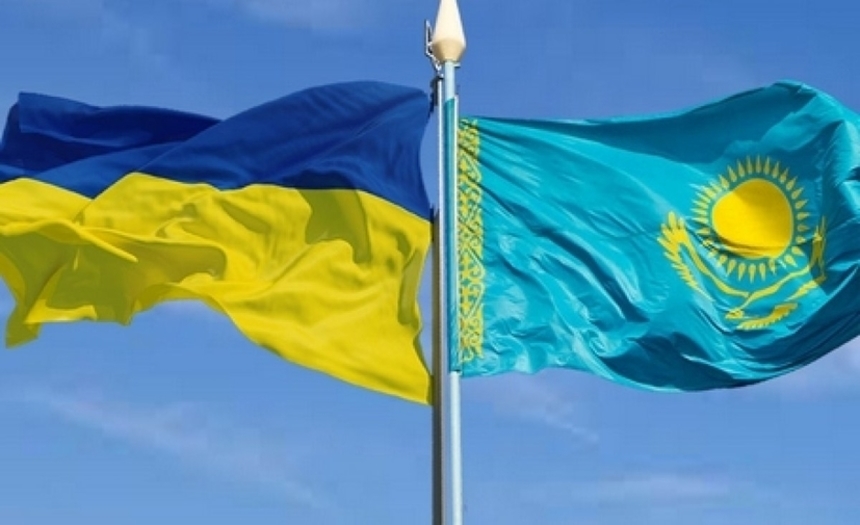Bayan Ardakh. The collapse of the international order or a different fate of Kazakstan and Ukraine?

(The photo was taken from the internet)
In 2015, when the Russian army, led by President Vladimir Putin, seized Crimea from Ukraine, there was an inexplicable mood in Kazakhstani society. The country openly sought answers to several questions. Initially, in 1995, Ukraine and Kazakhstan agreed to the total elimination of their nuclear arsenals and missiles on their territory under the Nuclear Non-Proliferation Treaty. The future giants of the world: the United States, Britain, France, China, and Russia should have fully guaranteed the protection of the independence and territorial integrity of these two countries. However, this guarantee turned into a useless piece of paper after the Crimean event. Russia, which seized Ukraine's independence and seized Crimea by force, has not been able to be stopped by the four giants. This situation has caused some uncertainty in Kazakh society. It was as if Kazakhtanis recognized the potential threat from the situation that happened in Ukraine.
However, there was a big difference between Ukraine and Kazakhstan. The main difference is related to Russia. When the leaders of Russia, Ukraine, and Belarus met on December 25, 1991, to sign the Treaty on the Dissolution of the Soviet Union, Central Asian countries, including Kazakhstan, along with the Baltic states, were largely ignored. In other words, the Slavic people, including the Russians, considered the Kazakhs to be the other. This became clear in 1995 when Russia pushed Kazakhstan out of the single ruble zone. Kazakhstan, which forcibly left the ruble zone, has been moving towards true independence since that time. Videlicet, the Russians did not have a soft spot for the Kazakhs, who did not want the collapse of the Soviet Union more than them.
The Russians and Ukrainians, who in 1991 abandoned the other allied republics and deliberately dissolved the Soviet Union, are now taking up arms and shedding blood. Russia took Crimea from the Ukrainians. Nobody thought it would happen 30 years ago. Thus the Slavic people were discredited. This wound may not be easy to heal. It is an incurable wound. This can be compared only with the campaign of Temir-Aksak-Khan against the Golden Horde Khan Tokhtamysh and the Ottoman Empire against Beyazid. Temir-Aksak-Khan’s campaign not only changed the course of history. It also caused a great rift in the internal unity of the Turkic peoples. The coldness between the Uzbeks and the Turks of that time is still evident today.
The main country that lost in the Crimean crisis the most was Russia. Firstly, after this incident, Russia crossed paths with the Ukrainians, and the Slavic alliance, necessary for the Russian Empire, ceased to exist. Secondly, it was recognized as an unreliable country that does not fulfill its promises as a world power. The United States, Britain, France, and China also lost their prestige, and trust was gone. These countries have come under suspicion as countries that do not have the confidence to call for order and to take timely and decisive action to maintain international order.
Another consequence of the events in Crimea has severely shaken the international order. For example, China has learned from Russia and made great strides in Hong Kong's politics. A fifty-year-old agreement with Britain to keep Hong Kong in power was called an "invalid agreement" and was thrown away. The country took full control of Hong Kong.
The Western community, particularly the United States, Britain, and the European Union, which have maintained the order for more than half a century, is facing a severe test. The order was broken first by Russia and then by China. Unfortunately, both seem to have achieved their goals to some extent. Russia has seized Crimea and will not return it to Ukraine any time soon. China is also taking bold steps in Hong Kong. The country is ignoring the resistance of the United States and the West. Doing whatever it wishes.
Geographically, Kazakhstan is a neighbor of two countries that violate the international order - Russia and China. Bilateral political and economic ties are tough. Kazakhstan has also been hit hard by the effects of the Russian economic downturn caused by Western sanctions. The tenge is depreciating. The sanctions imposed on China will have serious consequences for Kazakhstan as well.
Currently, the conflict in Kazakh society is increasing. Nursultan Nazarbayev, who ruled the country for nearly three decades, stepped up its crackdown on political opposition members and had completely wiped out the opposition. There is no systematic dialogue between the government and society. Without opposition, a suffocated society is now struggling with the authorities at the level of violence and street revolution.
